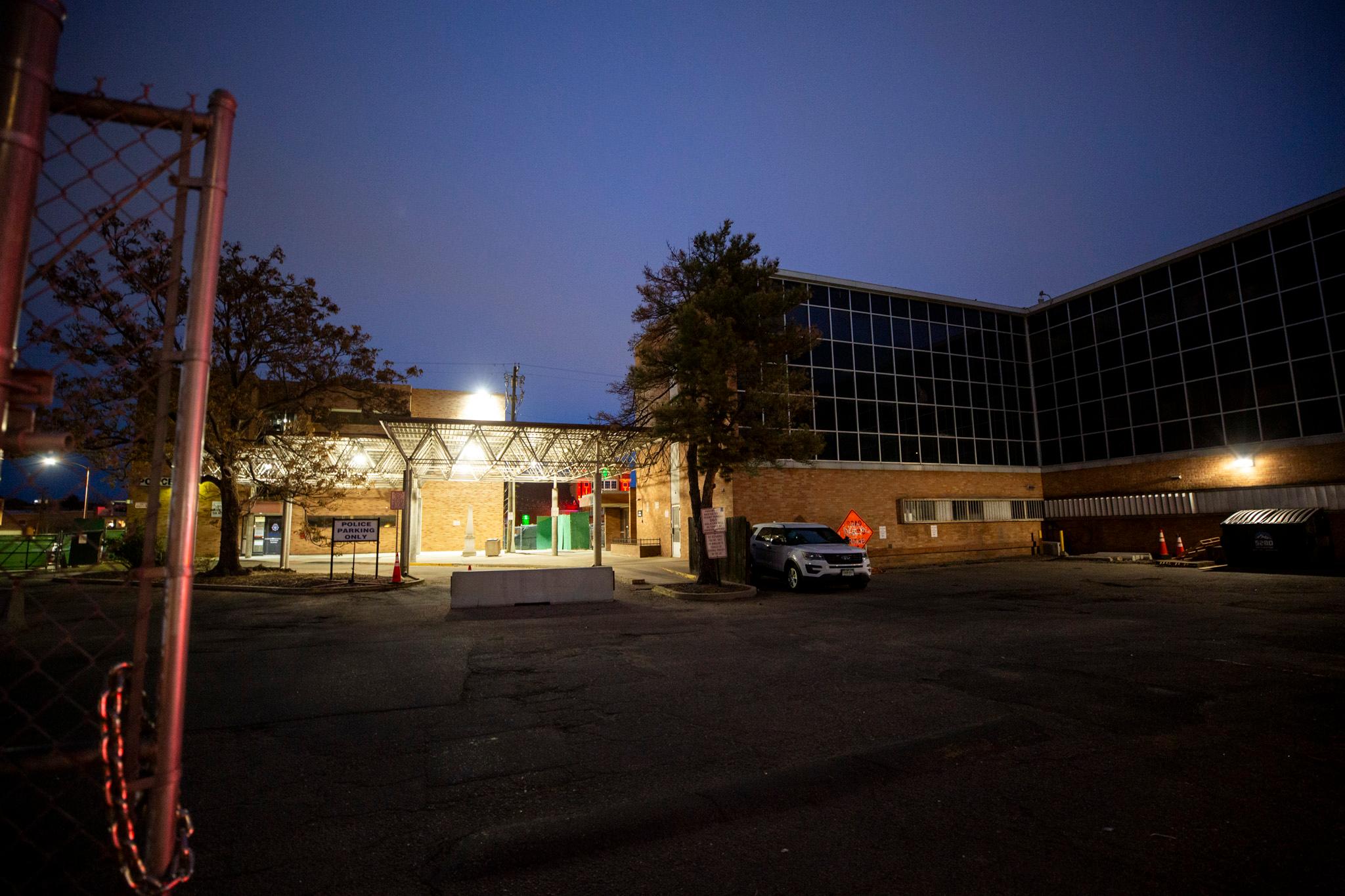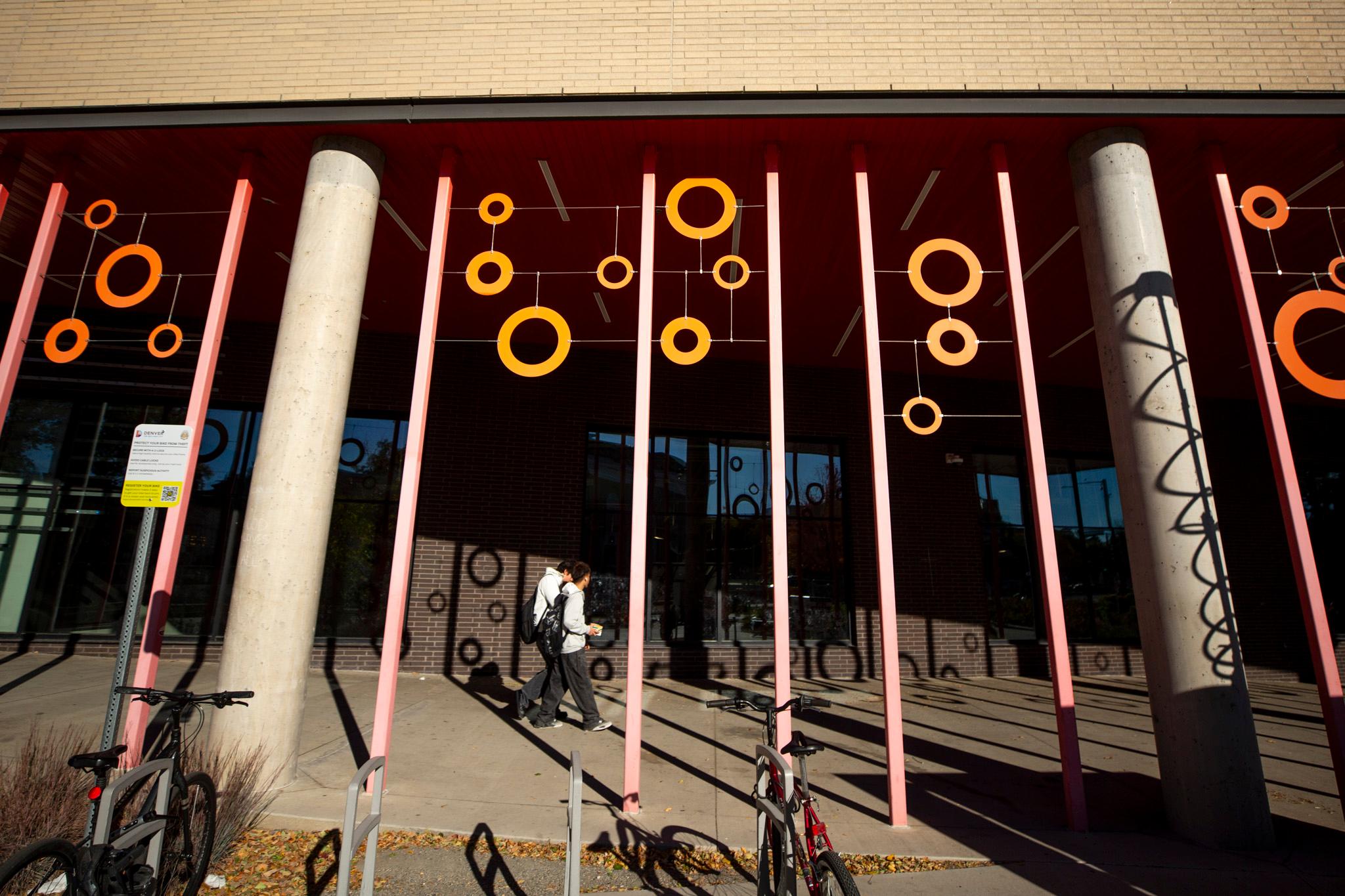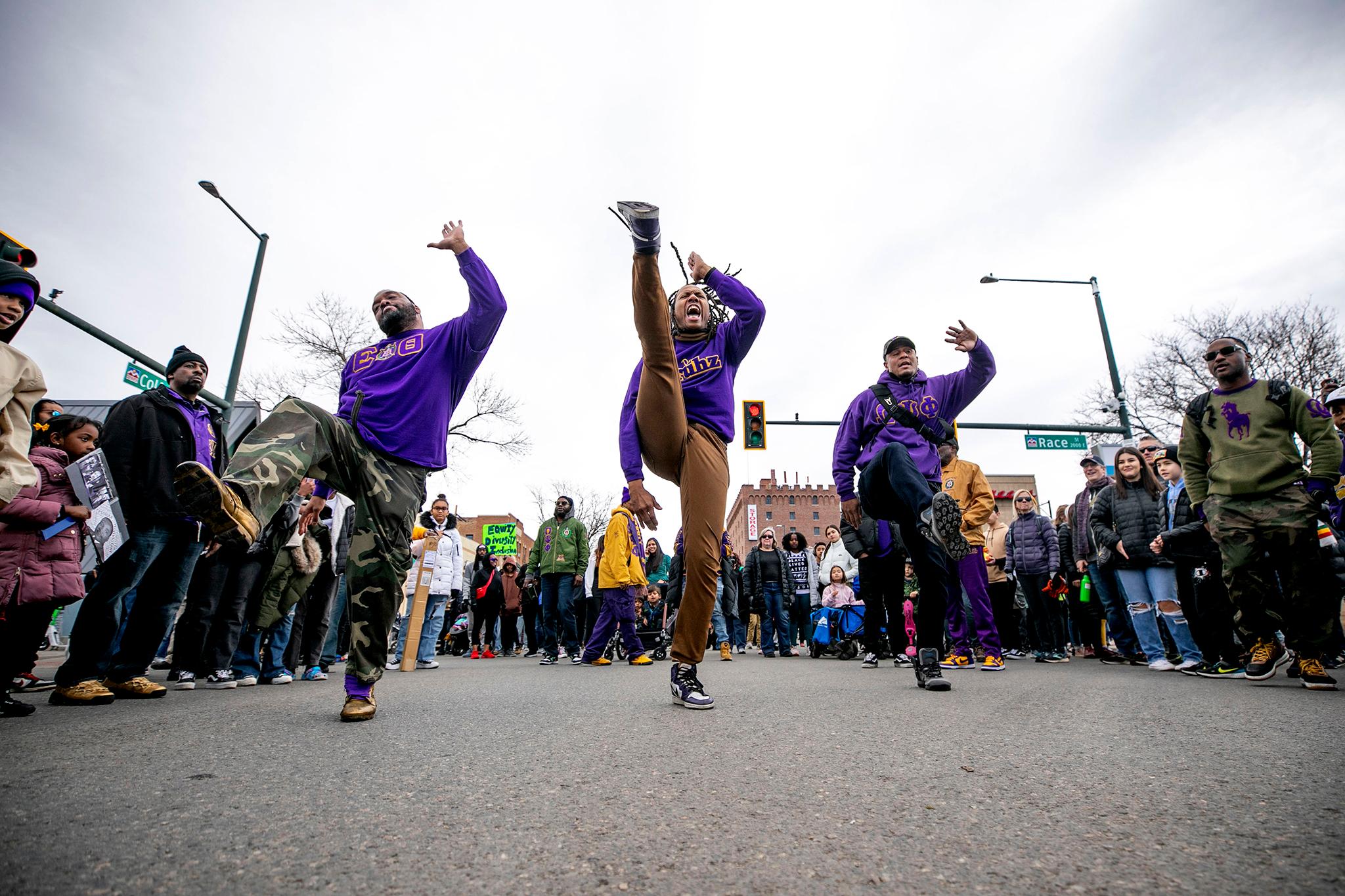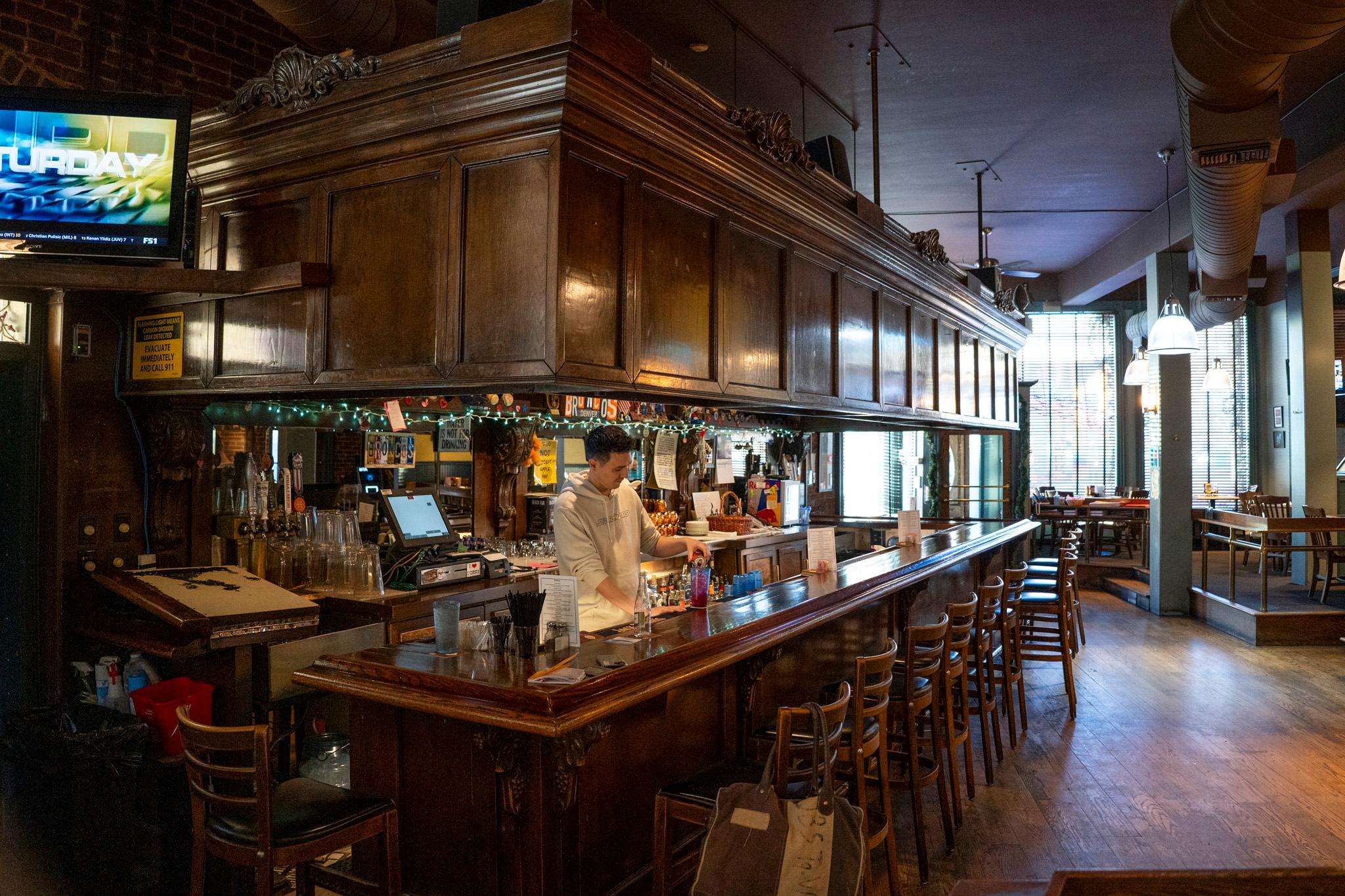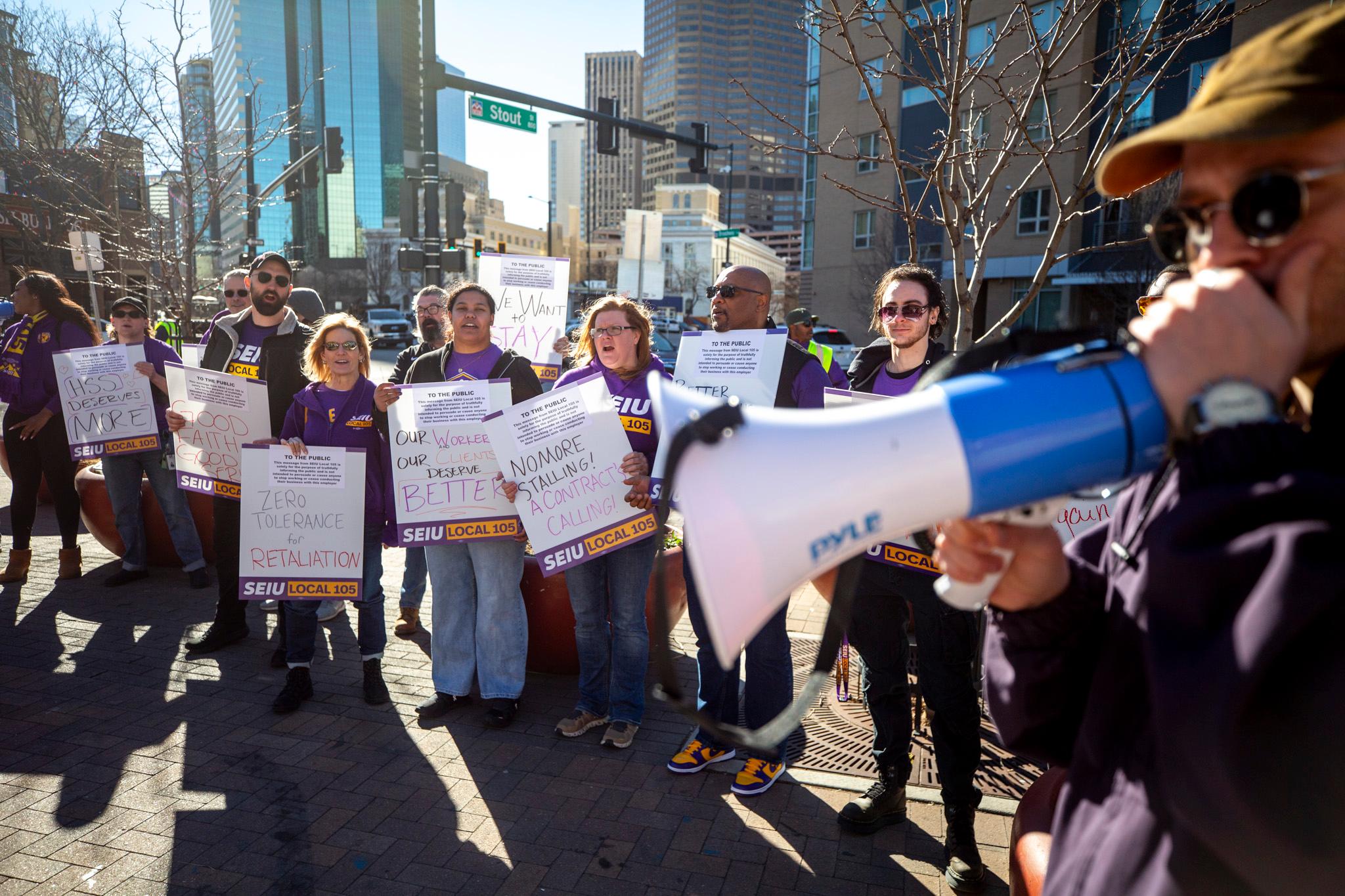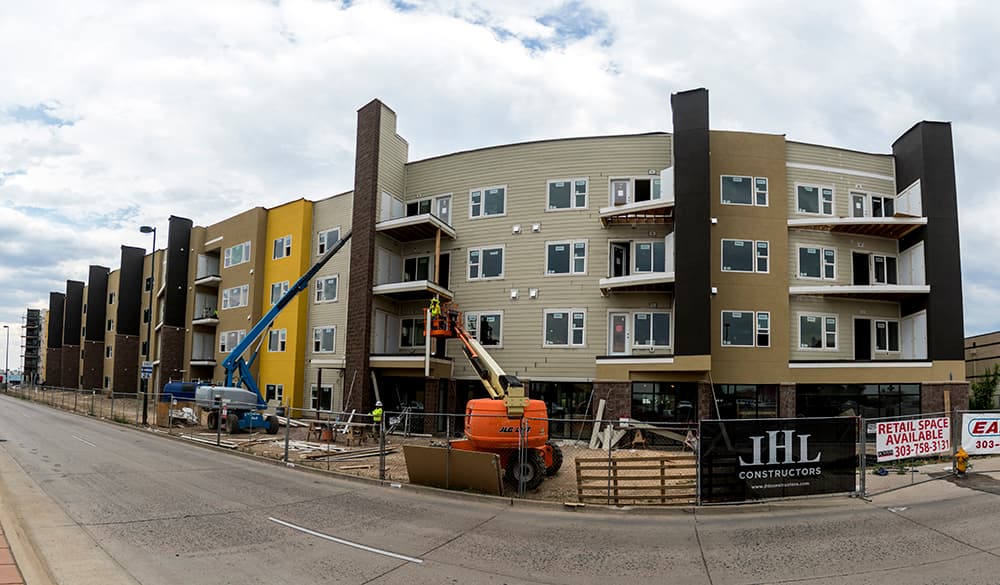
The advocacy group All in Denver is calling for the city to dramatically increase its investment in affordable housing and ask voters to approve new debt of at least $110 million to do so.
It's an idea that's getting traction with some City Council members, but the Mayor's Office isn't going all in just yet. Brad Segal, an economic development consultant and co-founder of All in Denver, said there may be enough momentum in the community to place a housing bond on the ballot with signatures, but the effort will be much more likely to succeed if it has the support of the city's elected officials.
"We’ve been saying from the beginning that housing and housing costs really are the No. 1 concern in the city," Segal said. "... If we’re serious, we need a much larger investment."
A spokeswoman for Mayor Michael Hancock said there's no disagreement about the "urgent need" for more resources. The question is whether more debt is the right way to do that.
"Throughout the development of the new Five-Year Housing Plan, it has been demonstrated that the affordable housing needs of the city eclipse the current resources available and that additional resources must be pursued," spokeswoman Jenna Espinoza said in an email. "We must ensure that all resources the city pursues are fiscally responsible and don’t hurt the very people we are aiming to help."
Espinoza said the Mayor's Office would review the proposal "to determine what the city is fiscally able to support."
Denver voters just approved $937 million in new debt to pay for a wide range of infrastructure projects. Half the money is set to go to transportation projects, another priority of the mayor, and none of it is set to go to housing, something that was a source of contention over the last year.
During the bond process, the city's CFO cautioned against taking on any more debt than this. It's not that the city literally has no more bonding capacity to take on debt; it's that city leaders don't want to raise taxes, and they want to hold on to bonding capacity for emergencies.
Councilwoman Debbie Ortega said this qualifies as one.
"We are in an emergency. We have a housing emergency in this city," she said. "I'm a broken record in this regard, that we don't bump up against our bonding capacity, but this is critical."
"Voters would have to decide if they have the appetite for this, but everyone knows someone who is in a housing crisis, whether it's young people trying to come home and live in the city they grew up in or families being pushed out because of rising rents."
This new proposal would let the city put more money into housing sooner.
With Hancock's backing, Denver City Council approved the creation of an affordable housing fund in 2016. Through a combination of property taxes and linkage fees on each square foot of new development, the city aims to raise $150 million over 10 years to create or preserve some 6,000 units of affordable housing. It's the first time the city has ever had a dedicated source of funding for affordable housing -- and it was being criticized as inadequate even before it was finalized.
All in Denver's proposal, submitted to the mayor and council members on Monday, includes four action items:
- Add $15 million in general fund money to the affordable housing fund in 2019. This would be on top of whatever the linkage fee and the dedicated half-mill in property taxes generates and would "jump start" implementation of the plan.
- Remove the provision that would get rid of the affordable housing fund in 2026. Councilwoman Kendra Black proposed the sunset clause as an amendment when the fund was approved, and a divided council voted 7-6 to accept it. Even at the time, advocates for the fund said the sunset clause would limit its effectiveness. With the sunset in place, it will be hard to issue debt on the existing fund because the revenue won't last long enough to pay it off.
- Increase property taxes by at least another half mill to add another $7.5 million to the affordable housing fund. The city can do this without getting voter approval because voters already gave the city permission back in 2012 when they "de-Bruced," voluntarily removing limits imposed by TABOR.
- Ask voters to approve a bond program of at least $110 million to fund affordable housing efforts. The debt would be paid back with the extra half mill in property taxes. All in Denver proposes that the bond program come with a property tax rebate provision for low-income homeowners.
All of these ideas aim to put more public money into housing in the next three to five years. From the perspective of All in Denver's board members, this issue can't wait 10 years.
Councilman Wayne New said a bond program is the best way to get more money in the near-term.
"When we first passed the affordable housing plan, I voted against it for exactly that reason," he said. "I thought it wasn’t enough money. Fifteen million a year is not going to produce a lot of housing.
"It’s frustrating from a money sense. We just went through the GO bond process, and there’s a lot of unrest among council members that there was no mention of housing in it."
But Black said she can't see her way to using property taxes to solve that problem. Last year, she had suggested the city use marijuana tax money for housing, but that idea didn't find much support from fellow council members.
"People always want to know, 'Where is all that marijuana money going?' I would love to tell them it's going for a really great cause. I think that would be an easy sell to voters," she said. "But I have a hard time explaining to someone, 'We’re raising your property taxes for affordable housing.'"
Black described herself as "not opposed" to bonding off existing property taxes for housing but not "gung-ho about it" either.
And she's not prepared to repeal the 10-year sunset provision either.
"What we were doing with that affordable housing bill was something new and different and adding to the cost of living in Denver by making construction more expensive and by raising property taxes," she said. "I have a fundamental issue with raising the cost of living here to fund affordable housing fund. ... The reason I wanted the sunset clause was I didn’t want us stuck with something that doesn't work."
All in Denver's proposal doesn't land in a vacuum.
On the one hand, many community members see affordable housing and gentrification as a crisis. On the other hand, some council members are raising concerns that Denver housing officials are committing money to new affordable housing projects before they have a chance to discuss and approve a comprehensive affordable housing plan. This concern showed up during the 2017 budget process and again when council members voted on allocating money from a legal settlement to housing. If we don't prioritize properly, will we find we've used all our money in the wrong places?
All in Denver is generally supportive of the comprehensive housing plan. Its members just think it needs more money to achieve its goals. Andrew Romero, an All in Denver board member who works on financing affordable housing, uses the example of the $1 million proposed for land banking. That's the idea of buying up land now, before it gets even more expensive, for future affordable housing projects.
"I think they just threw that in there because they couldn’t get away with putting zero in, but they didn’t have the resources to put in more," Romero said. "Their approach now is like a very thin peanut butter sandwich that is not very satisfying."
Segal said other cities and counties that have persuaded voters to approve affordable housing bond programs have had detailed plans and accountability measures. Denver will need that too, if we go this route.
"There is no lack of ideas," he said. "There would need to be priority-setting and a very concrete plan developed before this goes to voters. Voters are not going to approve a blank check, and we get that."
On the third hand, changes at the federal level could affect our ability to finance affordable housing at the local level.
The compromise GOP tax bill doesn't get rid of private activity bonds, but cuts to the corporate tax rate are expected to significantly reduce the value of low-income housing tax credits, meaning it will be harder for affordable housing developers to pull together the money they need to make projects happen.
New noted that affordable housing developers generally don't want to build for the poorest people in Denver, those earning below 40 percent of area median income (that's $23,520 for an individual and $30,240 for a household of three) because the supportive services many of these people need are costly and because the lower rents mean they need more subsidies to cover their own costs.
The city typically issues debt for infrastructure it will own, like recreation centers, police stations and roads, whereas the city typically doesn’t own housing. However, Romero said there are plenty of real-estate related purposes for which tax-exempt bonds could be issued, and using debt for those purposes frees up more money in the housing fund for ongoing expenses like rental assistance.
New believes that with more money, the city can better address both ends of the spectrum, helping organizations like Colorado Coalition for the Homeless build more housing for the very poor and subsidizing developers who do "workforce" housing for people who would have no trouble supporting themselves in a less expensive city.
New and Ortega said additional money could also go to support community land trusts. Gary Community Investments is heading up a group that has promised to put $24 million into a metro area land trust, and community organizers in Globeville and Elyria-Swansea have their own neighborhood-level proposal. Both depend on matching public money to realize their potential.
And on the fourth hand, Denver area developers are having a harder time making even market-rate deals pencil out, as The Denver Post reported last week. Land is more expensive, workers are hard to find and, yes, fees are going up. Rent increases are leveling off a little bit as more supply hits the market, but if projects don't get built, that progress could be lost -- and the city won't collect as much in linkage fees.
Which brings us to the fifth hand.
Denver's linkage fee is set to take in less than $1 million in 2017, compared to the $3.5 million that was projected. The city budget transfers general fund money into the housing fund to reach the necessary $15 million in funding.
From Black's perspective, this shows the folly of the linkage fee, which was opposed by the developers who have to pay it. People representing commercial real estate interests wanted the affordable housing fund to be paid for entirely with property taxes. The Gallagher Amendment means that commercial property owners pay about four times as much as residential property owners, so they'd still be kicking in money. But if the city follows All in Denver's lead, now they'll be paying a linkage fee AND a full mill of property taxes.
A lot of developers pushed to get projects in under the wire in 2016, so 2018 might see more linkage fee money come into the city -- or it might not, if this slow-down materializes.
While Black is concerned about increasing the cost of development too much, All in Denver's Segal said the property tax impact of an additional half mill is relatively small and ensures a stable source of revenue to which the entire community contributes.
"The linkage fee is totally speculative," he said.
"That’s going to ebb and flow as the economy ebbs and flows. It will be interesting to see if that’s ever going to be a substantial amount of money. The mill levy is so much more reliable. And if we’re in agreement as a city that this is a citywide priority, it makes sense for us all to invest in it."

